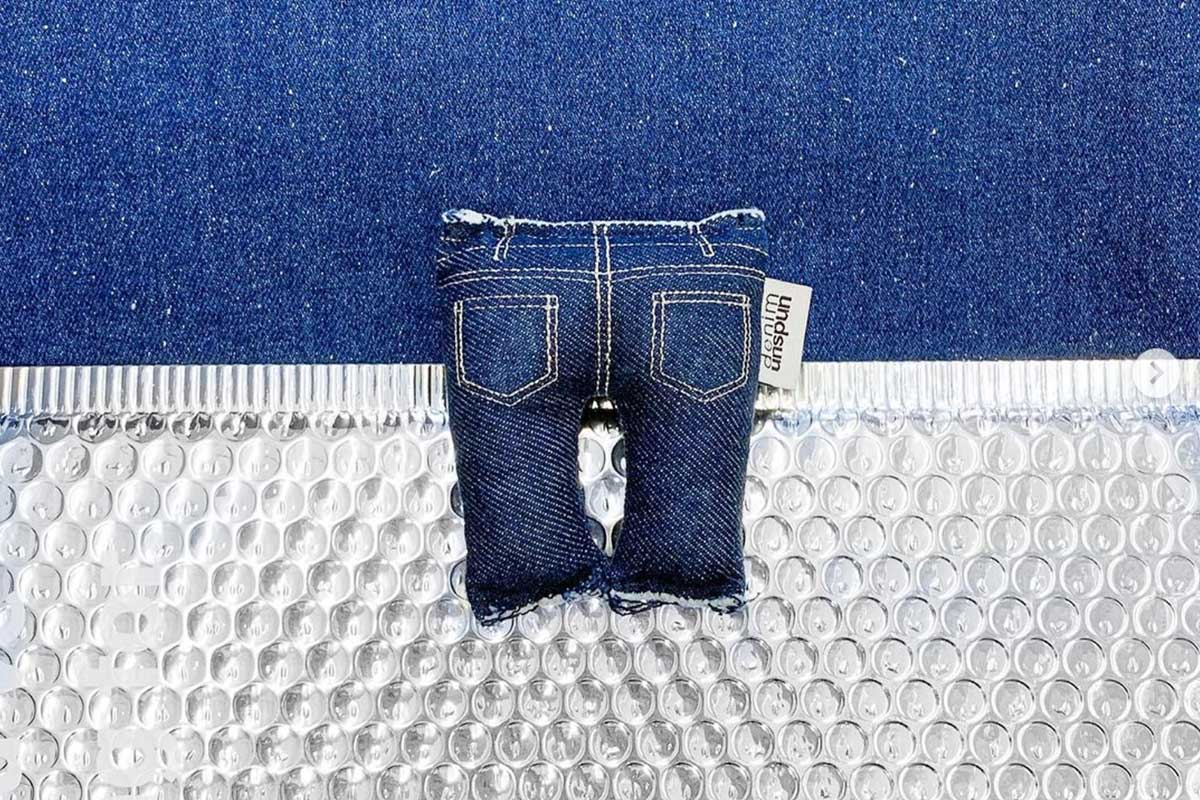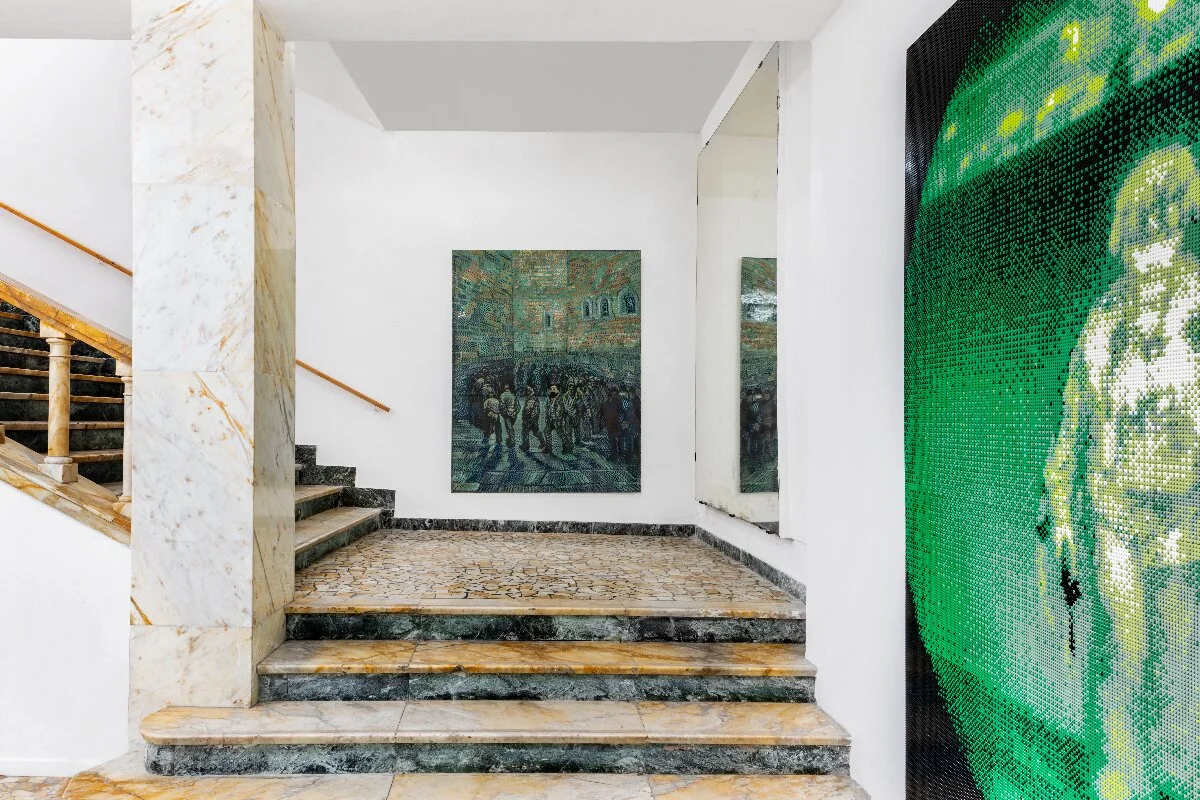Unspun and their drive to solve one of fashion’s problems proves that society’s demand can evolve by thinking of new solutions
Harmful chemicals involved in the denim manufacturing process
Living in the modern world —where all of its inhabitants are mobile, ambitious, and occupied— has come to define a pair of denim jeans to be key to any contemporary wardrobe. Chronicling from the beginning, the cotton fiber is irrigated and fertilized while subjected to several chemical washes—the run-offs from these harmful chemicals involved in the manufacturing process leak into local waterways. Large amounts of water are also necessary for producing denim: a single pair consuming around 2900 gallons of water. The workers involved are not spared from the results of this intensity as it is widely known that workers within low-cost denim manufacturing establishments are vulnerable to serious health risks like contracting tuberculosis and silicosis.
A pair of denim jeans was formerly the emblem for a society that required comfort in clothing to pursue bigger desires but now we are a conscious collective, demanding ethics without compromising style. Fulfilling this demand is what apparel start-up, unspun, sought out to do from its inception in 2017. unspun specializes in personalized, on-demand manufacturing of denim by eliminating inventory. They also operate on a non-standard size model as every pair of jeans is accurately designed to every customer’s unique body-type via technology. Co-founder and Chief Product Officer, Beth Esponnette, began the journey of melding robotics with apparel by witnessing the waste and aggravated manufacturing methods early on from her background as a fashion designer. «The industry is set up where people are efficient at one way of making, and it is cheaper to mass-produce, but the question is: how do we make things cheaper? For products like jeans, no one is a template or a standard size».
Unspun: Creating a personalized product through technology
Esponnette and fellow Co-Founder and CEO, Walden Lam launched this idea to reinvent the denim manufacturing process in Silicon Valley, San Francisco where technology acts as the beating heart of the city’s culture. «Technology is breathed and lived in the air here. It is a tool to make something exactly what the customer wants when they buy it. We did not know we would be using technology at the start but it became inevitable that this would be the best way to solve this big problem», Esponnette reveals. unspun has been working on a 3D weaving machine for the past three years; they have seen and made some significant leaps before finalizing the prototype— all starting with their 3D body scanner.
3D body scanning mechanism by using the Apple ‘Face ID’ technology
Esponette explains the unspun 3D body scanner’s mechanism by using the Apple ‘Face ID’ technology as an example. «It is called ‘infrared scanning’, but there are other names like ‘structural light-sensing’ or commonly, ‘facial recognition’. It combines hardware and software. In some Android phones or iPhone 10 models or higher, the infrared light at the top of the phone makes 30,000 dots called a matrix. It is projected on the surface it lands on. For our 3D scanner, 30,000 – 100,000 dots are similarly projected but on your entire body. We have a depth to us unlike a flat surface, so our customers have to spin around in front of the 3D scanner. Our software then stitches those dots together along with the depth of the consumer’s body, creating a full-body profile. Each body scan results in an individual pattern for every single person». The software that drives this 3D body scanner was created within a few months when unspun first began, but merging the hardware and software was where the challenges lie. Although it made its initial start in the United States, the start-up found its way into Asia, where unspun decided to start building their technology. Through an electronics program called LAX, held in Shenzhen (dubbed as the capital of hardware building), Esponette recalls the journey, «You run into issues and bugs of software — you can work your way around it. Whereas with hardware, you run into a problem if there is one. It has been a good challenge merging the two and while we were in Asia trying to get our first prototype off the ground, we decided to test out the market of Hong Kong and try to understand the consumers there. It became a gateway to manufacturing in Asia, which is where San Francisco is lacking».
Team unspun operates both in Hong Kong and San Francisco, where customers have access to their 3D body scanners at their stores. Amidst the COVID-19 pandemic, they needed to fall back onto their software to lead the way. «In March 2020, we did not have phone scanning capability at the time when we closed down our retail stores. Our existing customers could reorder, but new customers would not have a body scan within the system. But within six weeks, we partnered with a company to launch phone scanning at home. We have been able to reach people worldwide who would not have been able to access our technology».
Lampoon reporting: the impact of COVID-19 on the textile industry
Unspun continues to overcome challenges; Esponette explains, «People have slowed down during the pandemic, and they had the time to marinate in the stuff they own. We have become thoughtful about the pieces we have and buy. I have seen an uptick in people coming to us, saying that they want a pair of jeans made to last, custom to their size. They did not mind if it took a month or more to reach them because it was mindful buying». Esponette finds the excitement from delivering to like-minded customers to continue this journey of turning the denim manufacturing process on its head and working with partners who share the same vision as unspun. The apparel start-up co-founder divulges that unspun has to work with the right partners, particularly within creating the product. An individual pattern, created by unspun software, for a single customer does not work with many models that manufacturing factories are operating with where minimum quantities for orders are overwhelmingly high. However, unspun continues to spread this size-free and no-inventory model even further through bringing their technology to Europe via upcoming collaborations with brands like H&M and WEEKDAY, providing this custom-fit service to a wider customer base and successfully diversifying the product categories of those brands. «We are working with established brands because, in the long term, we want this to turn into an industry that does not use sizes or own inventory. To go further, we want to cut waste, and in maybe the next ten years, we as an industry can become fully circular. Our outputs can match with our inputs. What we produce from our machines can come back and be better used again».
Made-to-measure business model: Unspun case studio
The three-year-old apparel start-up is young. They are now ready to set on a new course. «We have been operating on a made-to-order basis rather than on-demand, which is what we ideally want to become. It will soon be possible for consumers to have a scan, and then the computer makes the pattern, and unlike our current traditional cut-and-sew techniques we have been using, our machine will make the product within ten minutes. Consumers no longer have to wait months, weeks or even hours for the perfect-fitting product», Esponnette affirms. Unspun and their drive to solve one of fashion’s problems proves that society’s demand can evolve by thinking of innovative solutions. «I picked up information from different design programs, just enough so that I could put pieces together. There is something to be said about diving into and not having any preconceived notions of it, that is valuable. You have fresh eyes compared to someone else that has been formally trained in that subject». Modern society works hand-in-hand with nature as Esponnette calls it «a balancing game». The denim manufacturing process has seen cheap costs that do not outweigh the risks and environmental effects that could last for an indefinite period. There is no question that a high amount of work goes into producing a single pair of jeans and unspun, not only chooses to acknowledge that fact but decides to innovate to begin to solve the problem. «We are fighting for the environment because we also want humans to last on this Earth. A custom-fit can convince people that we do not need to be making in excess. Like a process that happens in nature, one-off production is the way to do it».
Unspun
Unspun is a robotics and digital apparel company based in San Francisco, California, building custom jeans for each consumer, on demand.




















